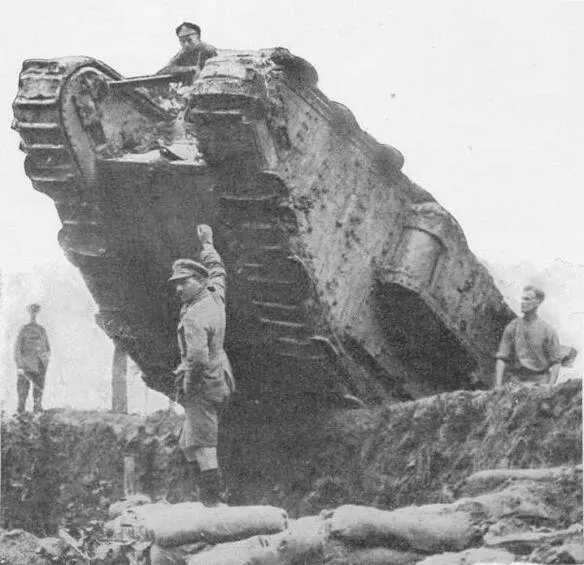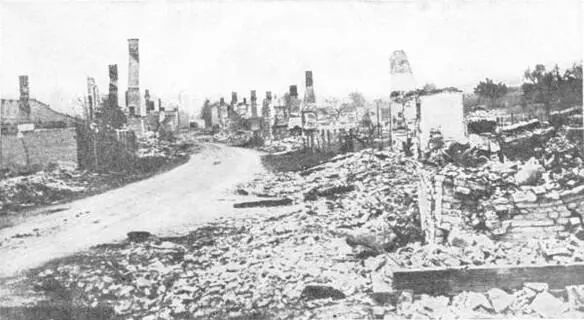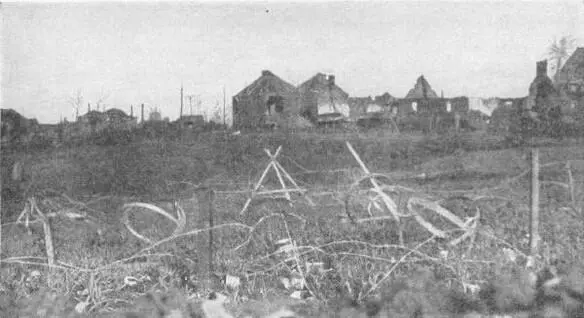Herbert Wells - A Short History of the World
Здесь есть возможность читать онлайн «Herbert Wells - A Short History of the World» весь текст электронной книги совершенно бесплатно (целиком полную версию без сокращений). В некоторых случаях можно слушать аудио, скачать через торрент в формате fb2 и присутствует краткое содержание. Год выпуска: 2011, Жанр: История, на английском языке. Описание произведения, (предисловие) а так же отзывы посетителей доступны на портале библиотеки ЛибКат.
- Название:A Short History of the World
- Автор:
- Жанр:
- Год:2011
- ISBN:нет данных
- Рейтинг книги:4 / 5. Голосов: 1
-
Избранное:Добавить в избранное
- Отзывы:
-
Ваша оценка:
- 80
- 1
- 2
- 3
- 4
- 5
A Short History of the World: краткое содержание, описание и аннотация
Предлагаем к чтению аннотацию, описание, краткое содержание или предисловие (зависит от того, что написал сам автор книги «A Short History of the World»). Если вы не нашли необходимую информацию о книге — напишите в комментариях, мы постараемся отыскать её.
A Short History of the World — читать онлайн бесплатно полную книгу (весь текст) целиком
Ниже представлен текст книги, разбитый по страницам. Система сохранения места последней прочитанной страницы, позволяет с удобством читать онлайн бесплатно книгу «A Short History of the World», без необходимости каждый раз заново искать на чём Вы остановились. Поставьте закладку, и сможете в любой момент перейти на страницу, на которой закончили чтение.
Интервал:
Закладка:
STREET IN HONG KONG
Photo: Underwood & Underwood
LXV
THE AGE OF ARMAMENT IN EUROPE, AND THE GREAT WAR OF 1914-18
THE progress in material science that created this vast steamboat-and-railway republic of America and spread this precarious British steamship empire over the world, produced quite other effects upon the congested nations upon the continent of Europe. They found themselves confined within boundaries fixed during the horse-and-high-road period of human life, and their expansion overseas had been very largely anticipated by Great Britain. Only Russia had any freedom to expand eastward; and she drove a great railway across Siberia until she entangled herself in a conflict with Japan, and pushed south-eastwardly towards the borders of Persia and India to the annoyance of Britain. The rest of the European Powers were in a state of intensifying congestion. In order to realize the full possibilities of the new apparatus of human life they had to rearrange their affairs upon a broader basis, either by some sort of voluntary union or by a union imposed upon them by some predominant power. The tendency of modern thought was in the direction of the former alternative, but all the force of political tradition drove Europe towards the latter.
The downfall of the “empire” of Napoleon III, the establishment of the new German Empire, pointed men’s hopes and fears towards the idea of a Europe consolidated under German auspices. For thirty-six years of uneasy peace the polities of Europe centred upon that possibility. France, the steadfast rival of Germany for European ascendancy since the division of the empire of Charlemagne, sought to correct her own weakness by a close alliance with Russia, and Germany linked herself closely with the Austrian Empire (it had ceased to be the Holy Roman Empire in the days of Napoleon I) and less successfully with the new kingdom of Italy. At first Great Britain stood as usual half in and half out of continental affairs. But she was gradually forced into a close association with the Franco-Russian group by the aggressive development of a great German navy. The grandiose imagination of the Emperor William II (1888-1918) thrust Germany into premature overseas enterprise that ultimately brought not only Great Britain but Japan and the United States into the circle of her enemies.

BRITISH TANK IN THE BATTLE OF THE MENIN ROAD
The crew came out for a breath of fresh air during a lull
Photo: British Official
All these nations armed. Year after year the proportion of national production devoted to the making of guns, equipment, battleships and the like, increased. Year after year the balance of things seemed trembling towards war, and then war would be averted. At last it came. Germany and Austria struck at France and Russia and Serbia; the German armies marching through Belgium, Britain immediately came into the war on the side of Belgium, bringing in Japan as her ally, and very soon Turkey followed on the German side. Italy entered the war against Austria in 1915, and Bulgaria joined the Central Powers in the October of that year. In 1916 Rumania, and in 1917 the United States and China were forced into war against Germany. It is not within the scope of this history to define the exact share of blame for this vast catastrophe. The more interesting question is not why the Great War was begun but why the Great War was not anticipated and prevented. It is a far graver thing for mankind that scores of millions of people were too “patriotic,” stupid, or apathetic to prevent this disaster by a movement towards European unity upon frank and generous lines, than that a small number of people may have been active in bringing it about.

THE RUINS OF YPRES (ONCE A DELIGHTFUL OLD FLEMISH TOWN)
To show the complete destructiveness of modern war
Photo: Topical

THE DEVASTATION OF MODERN WAR
Wire entanglements in the foreground
Photo: Photopress
It is impossible within the space at our command here to trace the intricate details of the war. Within a few months it became apparent that the progress of modern technical science had changed the nature of warfare very profoundly. Physical science gives power, power over steel, over distance, over disease; whether that power is used well or ill depends upon the moral and political intelligence of the world. The governments of Europe, inspired by antiquated policies of hate and suspicion, found themselves with unexampled powers both of destruction and resistance in their hands. The war became a consuming fire round and about the world, causing losses both to victors and vanquished out of all proportion to the issues involved. The first phase of the war was a tremendous rush of the Germans upon Paris and an invasion of East Prussia by the Russians. Both attacks were held and turned. Then the power of the defensive developed; there was a rapid elaboration of trench warfare until for a time the opposing armies lay entrenched in long lines right across Europe, unable to make any advance without enormous losses. The armies were millions strong, and behind them entire populations were organized for the supply of food and munitions to the front. Then was a cessation of nearly every sort of productive activity except such as contributed to military operations. All the able-bodied manhood of Europe was drawn into the armies or navies or into the improvised factories that served them. There was an enormous replacement of men by women in industry. Probably more than half the people in the belligerent countries of Europe changed their employment altogether during this stupendous struggle. They were socially uprooted and transplanted. Education and normal scientific work were restricted or diverted to immediate military ends, and the distribution of news was crippled and corrupted by military control and “propaganda” activities.
The phase of military deadlock passed slowly into one of aggression upon the combatant populations behind the fronts by the destruction of food supplies and by attacks through the air. And also there was a steady improvement in the size and range of the guns employed and of such ingenious devices as poison-gas shells and the small mobile forts known as tanks, to break down the resistance of troops in the trenches. The air offensive was the most revolutionary of all the new methods. It carried warfare from two dimensions into three. Hitherto in the history of mankind war had gone on only where the armies marched and met. Now it went on everywhere. First the Zeppelin and then the bombing aeroplane carried war over and past the front to an ever- increasing area of civilian activities beyond. The old distinction maintained in civilized warfare between the civilian and combatant population disappeared. Everyone who grew food, or who sewed a garment, everyone who felled a tree or repaired a house, every railway station and every warehouse was held to be fair game for destruction. The air offensive increased in range and terror with every month in the war. At last great areas of Europe were in a state of siege and subject to nightly raids. Such exposed cities as London and Paris passed sleepless night after sleepless night while the bombs burst, the anti-aircraft guns maintained an intolerable racket, and the fire engines and ambulances rattled headlong through the darkened and deserted streets. The effects upon the minds and health of old people and of young children were particularly distressing and destructive.
Читать дальшеИнтервал:
Закладка:
Похожие книги на «A Short History of the World»
Представляем Вашему вниманию похожие книги на «A Short History of the World» списком для выбора. Мы отобрали схожую по названию и смыслу литературу в надежде предоставить читателям больше вариантов отыскать новые, интересные, ещё непрочитанные произведения.
Обсуждение, отзывы о книге «A Short History of the World» и просто собственные мнения читателей. Оставьте ваши комментарии, напишите, что Вы думаете о произведении, его смысле или главных героях. Укажите что конкретно понравилось, а что нет, и почему Вы так считаете.








